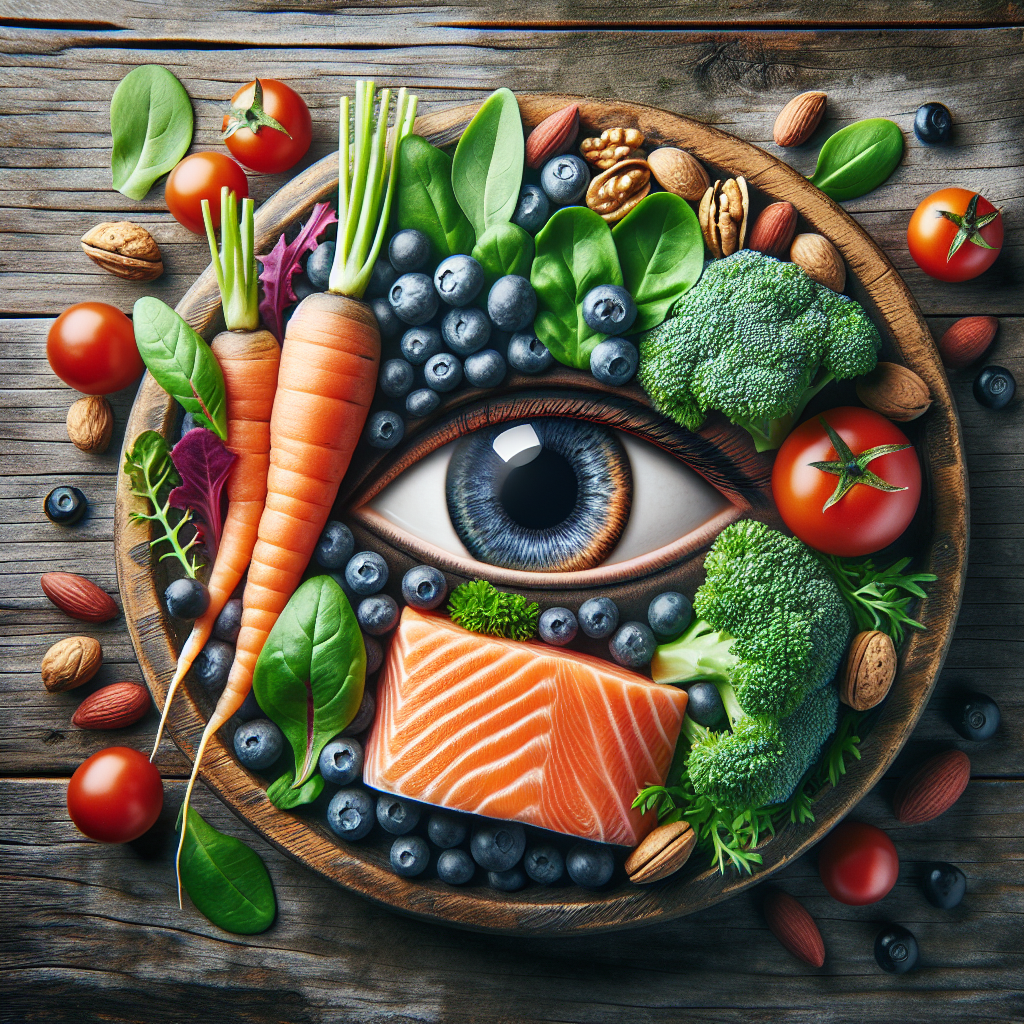Carrots: The Classic Vision-Boosting Superfood
When it comes to foods for eye health, carrots often take center stage—and for good reason. These vibrant orange roots are packed with beta-carotene, a type of vitamin A that plays a crucial role in maintaining healthy vision. Beta-carotene helps protect the surface of the eye (cornea) and is essential for low-light and color vision.
Why Carrots Work
The body converts beta-carotene into vitamin A, which then combines with the protein opsin to form rhodopsin. This light-absorbing molecule is what allows your eyes to detect images in dim lighting. Without adequate vitamin A, you may experience night blindness or dry eyes.
Best Ways to Eat Carrots
Blueberries: Antioxidant Powerhouses for Eye Protection
These small but mighty berries are nature’s answer to oxidative stress—one of the primary causes of age-related vision problems. Blueberries contain anthocyanins, potent antioxidants that give them their deep blue color and powerful protective properties.
Vision Benefits of Blueberries
Research suggests that regular consumption of blueberries may help:
Incorporating Blueberries Into Your Diet
For optimal eye health benefits, aim for about 1/2 to 1 cup of blueberries daily. Try them:
Leafy Greens: Lutein and Zeaxanthin Champions
Dark leafy greens like kale, spinach, and collard greens should be staples in any vision-supporting diet. These vegetables are among the richest natural sources of lutein and zeaxanthin—two carotenoids that accumulate in the retina.
How These Nutrients Protect Your Eyes
Lutein and zeaxanthin act as natural sunblock for your eyes by:
Top Leafy Greens for Eye Health
To maximize these benefits, focus on these nutrient-dense options:
Other Organic Foods for Better Vision
While carrots, blueberries, and leafy greens are superstars, several other organic foods deserve attention for their vision-supporting properties.
Fatty Fish for Omega-3s
Wild-caught salmon, sardines, and mackerel provide DHA, an omega-3 fatty acid that makes up about 30% of the retina’s structural fat. These healthy fats help:
Eggs: Complete Eye Nutrition
Pasture-raised eggs contain lutein, zeaxanthin, vitamin A, and zinc—all in one convenient package. The yolk is particularly nutrient-dense for eye health.
Nuts and Seeds
Almonds, walnuts, flaxseeds, and chia seeds provide vitamin E and omega-3s that protect eye cells from oxidative damage. A handful a day can significantly contribute to maintaining good vision.
Building a Vision-Supporting Diet
To create meals that actively protect and improve your eyesight, combine these foods strategically:
Sample Eye-Healthy Meal Plan
Additional Vision Protection Tips
While diet is crucial, remember to:
